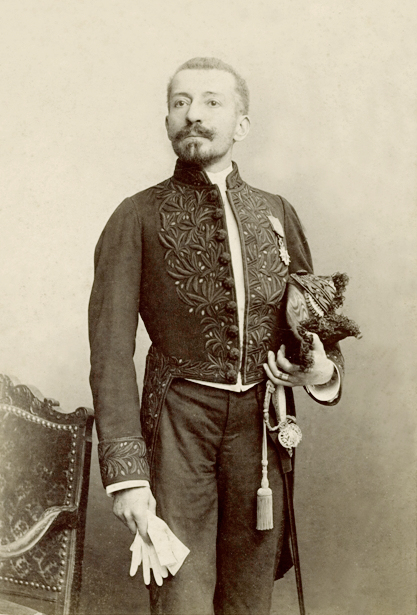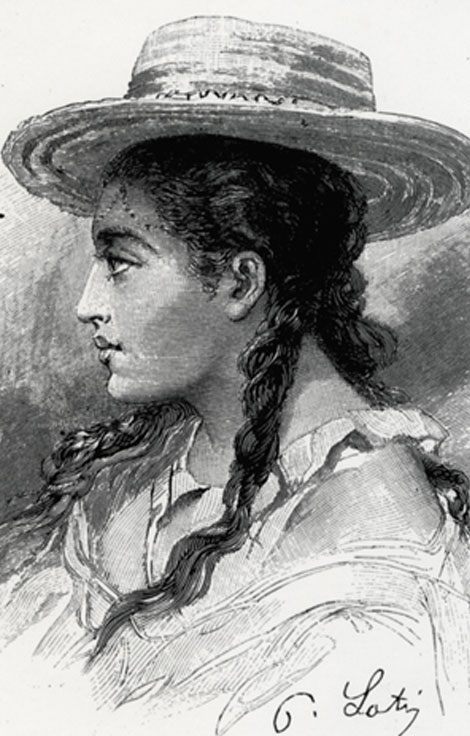Building a Library: Flora Wilson chooses her favourite recording of Delibes' opera Lakme.
Written in the early 1880s and set in the British India of the mid-19th century, Lakmé is based on the novel Le Mariage de Loti by Pierre Loti. The opera includes the ever-popular Flower Duet sung by Lakmé, the daughter of a Brahmin priest, and her servant Mallika. It's most famous aria is the Bell Song in Act 2. Like other French operas of the 19th Century, Lakmé projects a view of the Orient seen through Western eyes. However as a piece of well-crafted escapism with gorgeous tunes and lavish scenic backdrop it is an opera well worth discovering.
Available recordings:-
Joan Sutherland, Alain Vanzo, Gabriel Bacquier, Emile Belcourt, Jane Berbié, Monte Carlo Opera, Richard Bonynge
Denise Boursin, Alain Vanzo, Pierre Savignol, Agnes Disney, Pierre-Michel Leconte
Mady Mesplé, Danielle Millet, Charles Burles, Roger Soyer, Jean-Christophe Benoit, Bernadette Antoine, Monique Linval, Agnès Disney, Joseph Peyron, Chœurs et Orchestre du Théâtre National de l’Opéra-Comique, Alain Lombard
George Cehanovsky, Irra Petina, Annamary Dickey, Lily Pons, Lucielle Browning, Ezio Pinza, Armand Tokatyan, Helen Olheim, Nicholas Massue, Metropolitan Opera Orchestra, Metropolitan Opera Chorus, Wilfrid Pelletier *
Alessandra Ruffini, Giuseppe Morino, Bruno Pratico, Orchestra Internazionale d'Italia, Coro da Camera di Bratislava, Carlos Piantini
Natalie Dessay, Gregory Kunde, José van Dam, Delphine Haida, Franck Leguérinel, Patricia Petibon, Xenia Konsek, Orchestre Du Capitole De Toulouse, Michel Plasson
Mado Robin, Agnes Disney, Claudine Collart, Simone Lemaître, Libero de Luca, Jean Borthayre, Jacques Jansen, Pierre Germain, Jane Perriat, Edmond Chastenet, Camille Rouquett, Chorus and Orchestra of the Opéra-Comique, Paris, Georges Sébastian *
* = download only
Written in the early 1880s and set in the British India of the mid-19th century, Lakmé is based on the novel Le Mariage de Loti by Pierre Loti. The opera includes the ever-popular Flower Duet sung by Lakmé, the daughter of a Brahmin priest, and her servant Mallika. It's most famous aria is the Bell Song in Act 2. Like other French operas of the 19th Century, Lakmé projects a view of the Orient seen through Western eyes. However as a piece of well-crafted escapism with gorgeous tunes and lavish scenic backdrop it is an opera well worth discovering.
Available recordings:-
Joan Sutherland, Alain Vanzo, Gabriel Bacquier, Emile Belcourt, Jane Berbié, Monte Carlo Opera, Richard Bonynge
Denise Boursin, Alain Vanzo, Pierre Savignol, Agnes Disney, Pierre-Michel Leconte
Mady Mesplé, Danielle Millet, Charles Burles, Roger Soyer, Jean-Christophe Benoit, Bernadette Antoine, Monique Linval, Agnès Disney, Joseph Peyron, Chœurs et Orchestre du Théâtre National de l’Opéra-Comique, Alain Lombard
George Cehanovsky, Irra Petina, Annamary Dickey, Lily Pons, Lucielle Browning, Ezio Pinza, Armand Tokatyan, Helen Olheim, Nicholas Massue, Metropolitan Opera Orchestra, Metropolitan Opera Chorus, Wilfrid Pelletier *
Alessandra Ruffini, Giuseppe Morino, Bruno Pratico, Orchestra Internazionale d'Italia, Coro da Camera di Bratislava, Carlos Piantini
Natalie Dessay, Gregory Kunde, José van Dam, Delphine Haida, Franck Leguérinel, Patricia Petibon, Xenia Konsek, Orchestre Du Capitole De Toulouse, Michel Plasson
Mado Robin, Agnes Disney, Claudine Collart, Simone Lemaître, Libero de Luca, Jean Borthayre, Jacques Jansen, Pierre Germain, Jane Perriat, Edmond Chastenet, Camille Rouquett, Chorus and Orchestra of the Opéra-Comique, Paris, Georges Sébastian *
* = download only






Comment